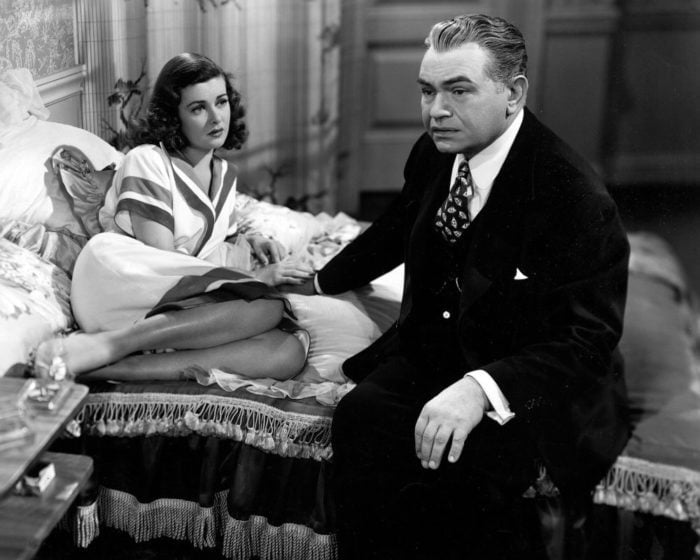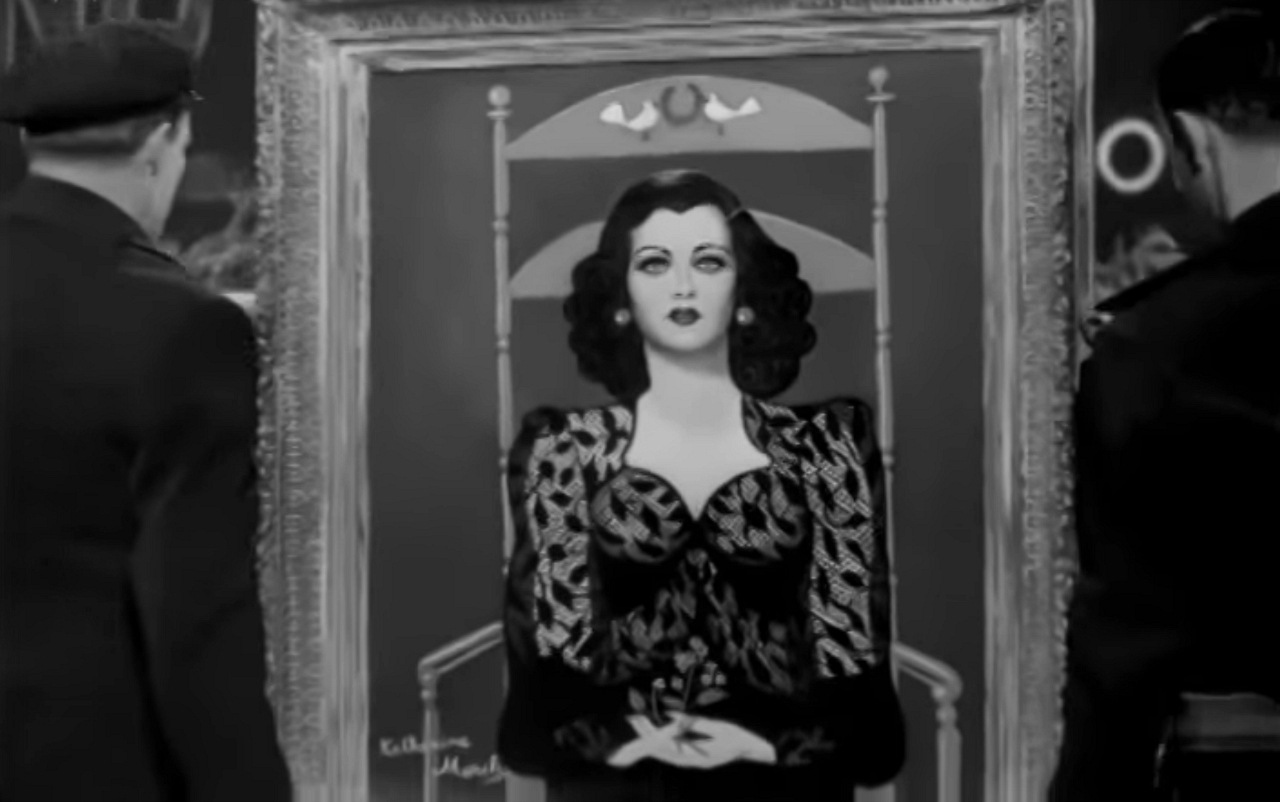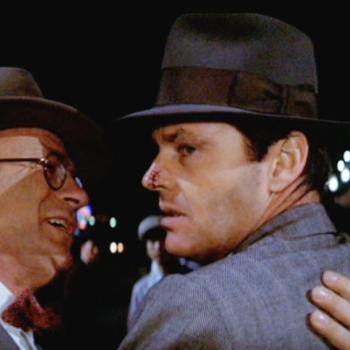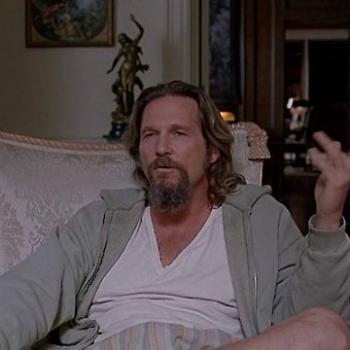
I’m kind of on a roll discussing nihilism and the dire realities of being alive in a fallen world, fresh off looking at both Chinatown and The Big Lebowski. Who am I to pull the plug?
So today we’re looking at Scarlet Street, a supremely underrated temple of classic cinema. The story sees a mild-mannered, middle-aged banker whose gradual descent into evil begins the night he saves a woman, “Kitty,” as she’s being physically assaulted on the street. It doesn’t escape his notice that Kitty is lovely, exactly the kind of woman he wishes would desire him. Even though Chris is stuck in a degrading marriage, he continues to fan his imaginations of love for Kitty, believing that she is in love with him.
Chris has no idea, though, that Kitty is playing him. The man Chris “rescued” her from was actually her boyfriend. (They are stuck in a mutually destructive relationship in which Johnny is physically abusive to her.) Chris mistakenly thinks that Kitty is in love with him. Meanwhile, Kitty thinks that Chris makes a fortune off his paintings, and she and Johnny plot to swindle his fortune. Both parties are deceived.
Sustaining his preferred illusion requires Chris to tread closer to the line of impropriety, even wickedness. He steals from his boss to pay for her apartment. All the while, Johnny and Kitty steal Chris’ art and sell it under the table–only for his work to achieve nationwide fame. Of course, once Chris discovers this, Kitty barely has to romance him to convince him to go along with it.
Eventually, Chris learns that Kitty has been playing him all along, and hearing Kitty unload on him, verbally emasculating him, mocking him for having ever thought that she could love a man like him, births a long-gestating beast in Chris, and he stabs Kitty to death with an icepick.
What makes the ending so delicious is … Chris ends up getting away with the murder–Johnny takes the fall–but he is nonetheless punished for having fallen into temptation. If anything, his ultimate fate is much worse. By the end of the film, Chris has lost his money, his reputation, even his art. Even as he tries to turn himself in for Kitty’s murder, he is written off as just a confused old man and sent back into the cold. Chris doesn’t have to die and be judged for his sins to go to hell–he’s already there, and it’s a hell that he made for himself.

This is the story of a man who loses absolutely everything. In a sense, it’s very easy to watch this situation and feel sorry for Chris–at least until he starts with the stabbing. Chris’ station wasn’t great at the start, but it was certainly much worse after he made the choices that he did.
Chris’ story arc, after all, begins with him rescuing a woman being violently assaulted. In any other story, this is how you signal that he is a good guy–an uncommonly good guy.
Neither is there something inherently wrong with a man wanting to be appreciated. Seeing where he starts at the film, you understand that he’s technically doing alright, but you do feel sorry for him just the same. He receives only nominal appreciation at work, his wife is flat-out degrading to him, and his passion and talent for the arts are severely underappreciated. In a different story, Christ could have been the protagonist of a feel-good tale about an ordinary, everyday man finally getting his due. Instead, it’s about his inner demons slowly strangling him.
Is there something defeatist to all that? That he should have just accepted his lot and never hoped for more? Maybe. But some things I am left thinking about …
Even if Chris’ spiral all germinated from a place of altruism or chivalry, he quickly became infected with pride, lust, greed. The deadly sins, right down the list. His motivations and his actions were never more than partially altruistic.
There were also turning points in his descent that he ignored. He didn’t just heel-turn into murder with no warning. It started with the lying, then with the embezzling, and so on. These were transgressions he indulged in to sustain a gratifying illusion. More, Chris ought to have known himself well enough to recognize his own vanities as it started to take over.
To me, that liminal space of viability speaks to an urgency to safeguarding one’s vulnerable spaces. Anyone has the capacity to fall into wickedness. Even after slaying Goliath, David fell from grace. Everyone’s a good guy in their own mind. It takes a special kind of self-awareness to detach from all that and know where your limits are …
Anyways, I think I’ve had enough of nihilism and harsh truths for a while. I promise I’ll analyze like a Disney movie or something here before long.













